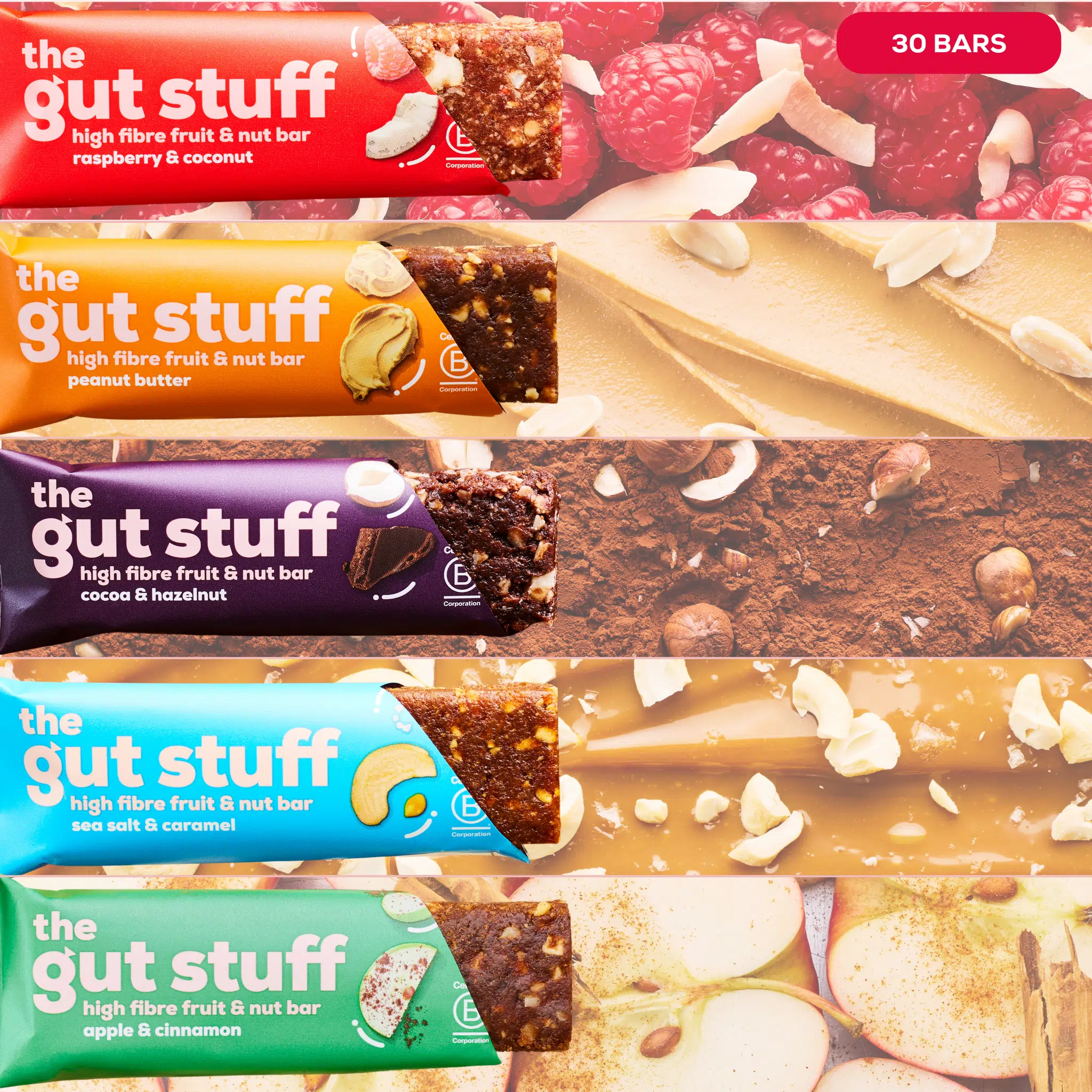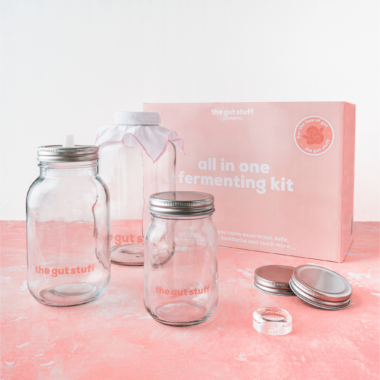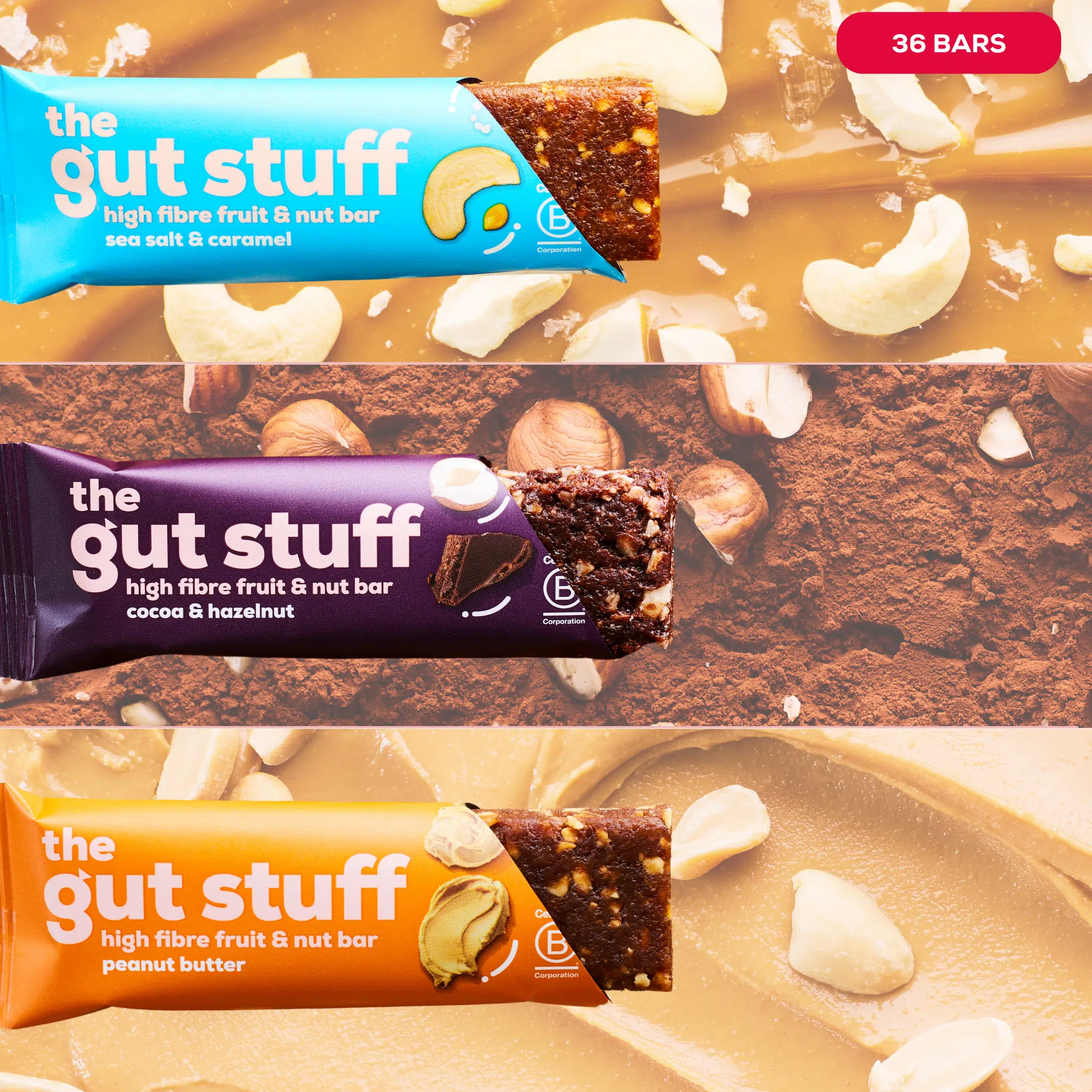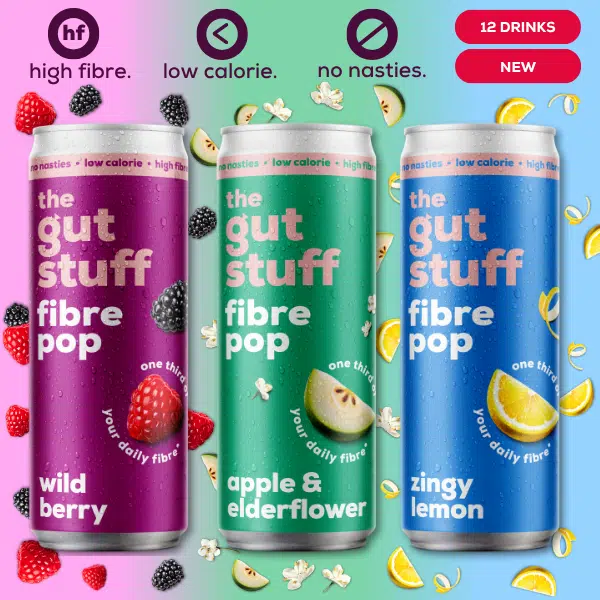
regurgitation and reflux in infants
Reflux and regurgitation are completely normal in babies as their digestive system develops, particularly straight after feeding. Reflux is when milk and/or stomach acid travels up the baby’s throat, with regurgitation happening when it passes out the baby’s mouth too. Regurgitation is different from vomiting as it isn’t strained, and is more like a reflex reaction similar to a hiccup. This happens as the muscle at the top of the stomach is still developing causing it to be loose. Both reflux and regurgitation peak at around 4-6 months. 95% of babies grow out of reflux and regurgitation by the time they’re a year old, and rapidly start improving when the baby is able to sit up at around 10 months (1). Most babies are happy and healthy despite frequently spitting up (2). In some cases though, reflux and regurgitation can cause distress for both babies and parents. Parents can worry that their baby might not be getting enough food to grow.
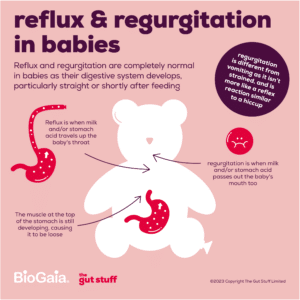
to manage reflux and regurgitation you can:
-
- Try not to overfeed by feeding small amounts more regularly
- Keep your baby upright during feeding and for about 30 minutes after
- Burp your baby during and after feeding
- Make sure your baby sleeps on their back, and not on their side or front
A meta-analysis and systematic review found that giving your baby probiotics to prevent regurgitation can have some benefit, but most studies so far have been small and more evidence is needed before we can know for sure (3). The strain Lactobacillus reuteri DSM 17938 has been shown to reduce how often regurgitation happens in infants (4). Severe cases of reflux and regurgitation in babies can cause feeding problems and a failure to thrive. It can also sometimes be a symptom of a cow’s milk allergy. If you’re concerned about your baby, it’s best to talk to a healthcare professional or your health visitor.
references
- Campanozzi A, Boccia G, Pensabene L, Panetta F, Marseglia A, Strisciuglio P, Barbera C, Magazzù G, Pettoello-Mantovani M, Staiano A. Prevalence and natural history of gastroesophageal reflux: pediatric prospective survey. Pediatrics. 2009 Mar;123(3):779-83. doi: 10.1542/peds.2007-3569. PMID: 19255002.
- Hegar B, Dewanti NR, Kadim M, Alatas S, Firmansyah A, Vandenplas Y. Natural evolution of regurgitation in healthy infants. Acta Paediatr. 2009 Jul;98(7):1189-93. doi: 10.1111/j.1651-2227.2009.01306.x. Epub 2009 Apr 21. PMID: 19397533.
- Foster JP, Dahlen HG, Fijan S, Badawi N, Schmied V, Thornton C, Smith C, Psaila K. Probiotics for preventing and treating infant regurgitation: A systematic review and meta-analysis. Matern Child Nutr. 2022 Jan;18(1):e13290. doi: 10.1111/mcn.13290. Epub 2021 Dec 15. PMID: 34908230; PMCID: PMC8710121.
- Indrio F, Riezzo G, Raimondi F, Bisceglia M, Filannino A, Cavallo L, Francavilla R. Lactobacillus reuteri accelerates gastric emptying and improves regurgitation in infants. Eur J Clin Invest. 2011 Apr;41(4):417-22. doi: 10.1111/j.1365-2362.2010.02425.x. Epub 2010 Nov 26. PMID: 21114493.
